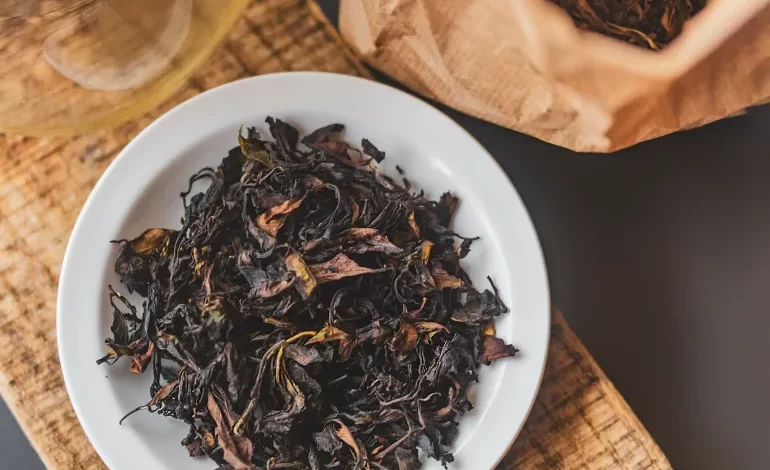After the Ban on Kenyan Imports… What Are the Main Implications for Sudan’s Economy?

Sudan Events – Agencies
The political crisis and its economic repercussions between Khartoum and Nairobi continue to dominate the scene amid the ongoing war in Sudan. A month after the Sudanese government decided to ban imports from Kenya due to its hosting of a conference for the Rapid Support Forces (RSF), Kenyan President William Ruto claimed that Sudan was still purchasing Kenyan tea—an assertion denied by the Sudanese embassy in Nairobi, which affirmed that the import ban remains in effect.
Exchanged Statements
In a televised interview broadcast by Kenyan media, President William Ruto stated: “We are still selling tea to Sudan, even after they claimed they wouldn’t buy it. The market forced them to.”
In response, the Sudanese embassy in Nairobi issued a statement confirming full enforcement of the decision, stating that no Kenyan products, including tea, had been imported into Sudan since the ban was implemented, and that any claims of continued supply were unfounded.
Bridging the Gap
Despite the Kenyan president’s remarks, Zimbabwe’s ambassador to Sudan, Emmanuel Gumbo, announced during a meeting with the ministers of foreign affairs, trade, and supply, his country’s readiness to meet Sudan’s tea demand.
In this context, journalist and economic expert Moatasem Al-Aqraa told Al Jazeera Net that the economic impact on Sudan is limited, noting the possibility of importing tea from other African or Asian countries.
Similarly, economist Abdel Azim Al-Mahal stated that the trade balance between Sudan and Kenya favors the latter, as Sudan imports more than it exports. He added: “Sudan can find alternatives in African markets like Zimbabwe or Asian tea-producing nations.”
He believes the boycott will be costly for Kenya, as Sudan served as a gateway for its products into Arab countries.
Internal Losses
On the other hand, economic journalist Nazik Shammam warned of the decision’s repercussions on Sudanese traders, stating that tea merchants would suffer significant losses due to the politically motivated import ban.
She added: “Tea factory owners who relied on Nairobi will not find immediate alternatives and will be forced to turn to countries like India and Pakistan, resulting in higher costs, especially as tea is a staple in Sudanese food culture.”
Shammam noted that the tea trade in Sudan will face major challenges, especially since many manufacturers own farms in Kenya to support their operations in Khartoum, making future imports more difficult.
Supply Chains and Adaptation
According to Shammam, the unstable security situation complicates any attempt to relocate tea farms to Sudan or other countries, leaving the only immediate solution as importing at higher costs from distant markets, which will directly affect local prices.
Meanwhile, economic researcher Tayeb Abdul Salam believes the ban will cause a temporary disruption in supply chains but expects the market to adapt within a year through new suppliers or informal channels.
Economic journalist Rehab Farini downplayed the significance of the ban, pointing out that countries like Zimbabwe can easily fill the gap, in addition to Asian countries capable of supplying Sudan with large and affordable quantities.
She also ruled out the possibility of domestic tea cultivation in Sudan due to unsuitable climate conditions.
Local Tea Cultivation – Diverging Views
Despite that, economist Haitham Fathi argued that the decision—though unexpected—might pave the way for attempts to localize tea cultivation, citing Sudan’s diverse climate.
He told Al Jazeera Net: “Tea prices will rise in the short term, but Sudan has African alternatives it can rely on.”
While some believe local tea farming is possible, others reject the idea due to climate and cost concerns, reflecting a clear divide on its feasibility.
In this regard, agricultural engineer Ammar Hassan from the Ministry of Agriculture described the ban as an economic pressure card against Kenya, urging the Sudanese government to swiftly secure effective alternatives to cover the gap.
He also dismissed the possibility of long-term price increases, noting that the government is working on importing tea from other markets and highlighting calls for developing domestic alternatives.
Political Dimension
On another note, political researcher and writer Hassan Al-Nasser said Kenya will not back down from its support for the RSF, attributing this to “political and military guarantees” that outweigh its commercial interests with Sudan.
He added: “The real question is to what extent internal Kenyan dynamics might form a pressure front against President William Ruto.”
He also described Sudan’s response as relatively delayed, arguing that its diplomatic stance toward RSF-supporting countries remains weak, potentially emboldening Kenya’s position.



